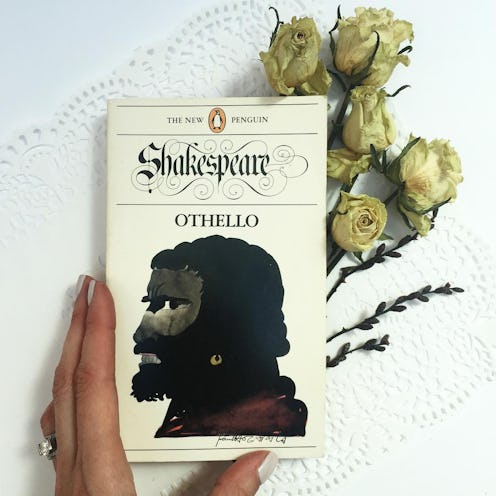Books
Why Now Is The Time To Start Reading Plays
Most people, even if they were cool in high school, have a vague idea of what a "play" is supposed to look like. It's sort of like a movie, except there are no explosions or close ups on hot people, the actors are in the same room as you, and texting throughout is even more frowned upon. Maybe there's a tap dance, or someone talking to a skull, and Neil Patrick Harris is probably there. But what if I told you that plays can also be read, almost like they're actual literature? The thought may give you flashbacks to your days of 8th grade English, but I'm here to tell you that you should read plays. You should read plays, even if there's no teacher to make you read the plays. And now is the time to start.
Of course, live theatre is nearly always the best way to experience a play (as a theatre kid born into a theatre family, I am legally obligated to say that, and to spell "theatre" the pretentious way). But we don't all live in New York. And even those of us who do live in New York aren't infinitely wealthy, or willing to blackmail Lin-Manuel Miranda into getting us free tickets. Sometimes, reading a script is the next best thing.
Even if you lead a very theatrical life, constantly going to shows and breaking into song on street corners, you might find that reading plays is still a lot of fun for its own sake. Plays, you see, must be read out loud—even if you're only reading them "out loud" in your own head. You must be an active participant in them. More than with a novel, you are in charge of the cast and scenery. A script is a blue print for a story: dialogue and a handful of stage directions create line art for other artists to come along and color in. That's why it is entirely possible to see good and bad productions of the exact same script (pro tip: if you're considering taking a classic play and setting it in space, don't).
Plus, reading a play is sort of like peering behind the proverbial curtain. Unless you're reading Harry Potter and the Cursed Child, the script in your hands is probably meant to be turned into live theatre, not to be read on its own. Reading a script, you get to pick apart the author's secret formula, the ingredients that combine to make a great piece of art. Truly, reading plays is the literary equivalent of eating raw cookie dough: it's not really the intended method of consumption, but it is certainly delicious (and reading plays won't give you salmonella).
And, of course, at its heart, a good play is really just a great story told entirely through dialogue and wigs. What's not to like?
So, now that you are completely and utterly convinced that reading plays is both a useful and valid activity... why now?
Well, from the festival of Dionysus in Ancient Greece to waiting in line for Hamilton tickets, theatre has always been a way for people to talk about society. There's a reason that so many of the most popular musicals (Hamilton, Rent, Les Miserables, Wicked, even Avenue Q) deal with revolution, or at least dissatisfaction with the status quo. Plays are not the only flavor of literature to deal with political unrest, of course, but the nature of theatre is that it forces a bunch of people to sit in a room together and have the same artistic experience. Books have always been a mostly one-on-one experience, and movies and TV are quickly moving in that same direction. And yes, watching TV in your pocket is great and makes us feel like we live in the Jetsons, but it doesn't always makes us feel like part of a larger community.
A play puts you right in front of the characters in the narrative. You're not allowed to leave the story, unless you really have to use the bathroom. You're part of every moment, whether you're reading a script or sitting in the audience.
And boy do we need to cram the entire country in one room right now and all have one single artistic experience. If you're struggling to make it through the daily news without wanting to scream, or if you can't stomach looking at photos of our current hate vortex of a president, consider adding more theatre to your life. It might not heal America right away, sure, but at the very least, plays force you to engage with the reality around you. From Shakespeare to your cousin's one man show, most of the plays out there aren't just trying to whisk you off into an escapist wonderland (jukebox musicals excluded). They're trying to make you think harder about the world you already live in.
So grab a few friends and a few scripts, open a bottle of wine, and read a play. Or go see more plays. Or just slip a script in your bag and read a play and your own leisure, then trap all your friends in a room and make them listen to you talk about it.
However you want to do it, now is the time to start all of those long, hard conversations about changing the status quo, before we grow numb to our current state of crisis. And reading plays is not the only way to go about that (nor should it be), but it's certainly a start.
